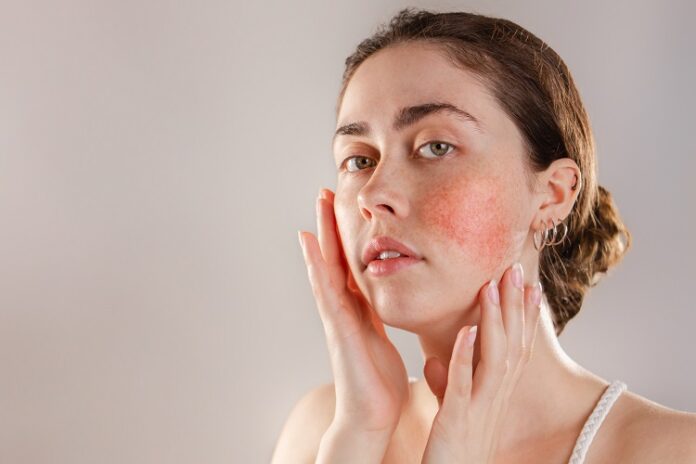- Dark underarms, while usually not medical concerns, can sometimes indicate skin cancer and other health issues.
- Sunburn can damage DNA in skin cells, potentially leading to cancerous growths.
- Persistent itchiness may signal underlying conditions like allergies, infections, or even kidney disease.
- Changes in moles may indicate melanoma, while chronic dry skin can lead to conditions like eczema or psoriasis.
Your skin is the largest organ of your body, and it serves as the first line of defense against various external factors. However, skin conditions often get overlooked despite their essential functions, especially if they seem harmless or only affect specific body parts. But did you know some skin conditions can be more severe than you think? This blog will examine some of these conditions and why you should take them seriously.
Table of Contents
Dark underarms.
Dark underarms, also known as axillary hyperpigmentation, typically indicate an increase in the pigmentation or coloration of the skin in the underarm area. While dark underarms are usually not a medical concern, they can be caused by various factors such as shaving, using specific antiperspirants, excessive sweating, or diabetes. In some cases, dark underarms might also indicate skin cancer.
Therefore, if you are experiencing any persistent changes in your skin’s coloration or texture, it is best to consult a doctor for further evaluation. Additionally, if you’re wondering how to lighten your underarms naturally, there are plenty of things you can do. You can use natural ingredients such as baking soda, lemon juice, and yogurt that can help to exfoliate the skin. Additionally, you can use topical treatments that contain antioxidants, such as vitamin C, that can help to brighten the skin.
Sunburn.
Everyone knows that sunburn can be painful and unsightly, but did you know that it could also increase your risk of skin cancer? Repeated sun damage can cause DNA damage in your skin cells, leading to mutations and potentially cancerous growths. So, if you’re prone to sunburn, make sure to always wear sunscreen and seek shade whenever possible.
Itchiness.
Itchiness is usually caused by dry skin, but it can also be a sign of something more serious. Skin itching may be an indication of allergies, certain infections, or even kidney disease or cancer. If you’re experiencing persistent itchiness, talk to your doctor about possible underlying conditions that could be the cause.
Moles.
Moles are one of the most common skin conditions, but they can also be a warning sign for melanoma, the deadliest form of skin cancer. If you notice any changes in your moles, such as size or color, it’s essential to get them checked out by a dermatologist. With early diagnosis and treatment, melanoma is highly treatable.
Dry skin.
Dry skin may seem like a minor nuisance, but it can actually have serious consequences. Severe and chronic dryness of the skin can lead to eczema or psoriasis, both of which can cause pain and discomfort. If you’re experiencing persistent dryness in any part of your body, here are a few things you can do:
Use mild, fragrance-free cleansers and moisturizers.
Using mild, fragrance-free cleansers and moisturizers can help to keep your skin hydrated and reduce the chances of irritation. Additionally, you should always make sure to apply sunscreen when going outdoors, as UV radiation can aggravate dryness.
Avoid hot showers.
Hot showers may feel nice at the moment, but they can strip away natural oils from your skin and lead to more severe dryness. Try taking lukewarm showers instead and using a hydrating body wash.
Invest in a humidifier.
Humidifiers can help to keep the air around you moist, which in turn can help to prevent dryness of your skin. If you have dry skin, try using a humidifier in your bedroom at night or during the drier months of the year.
Eat more foods that are rich in omega-3 fatty acids.
Omega-3 fatty acids, which can be found in foods like salmon, walnuts, and flaxseeds, are essential for skin health. Eating these foods regularly can help to keep your skin hydrated and reduce the occurrence of dryness.
Dry skin can be a minor annoyance or a sign of something more serious. Therefore, if you’re experiencing persistent dryness in any part of your body, taking the necessary steps to keep your skin healthy and hydrated is essential.
The health of your skin is a critical aspect of overall well-being that often gets overlooked. While certain skin conditions might seem harmless, it’s crucial to remember that they can sometimes be a sign of more severe health issues.
Therefore, paying attention to changes in your skin’s color, texture, or overall condition is essential. Regular self-checks, consultation with a dermatologist or a medical professional when needed, and maintaining a healthy lifestyle can go a long way in ensuring skin health.











